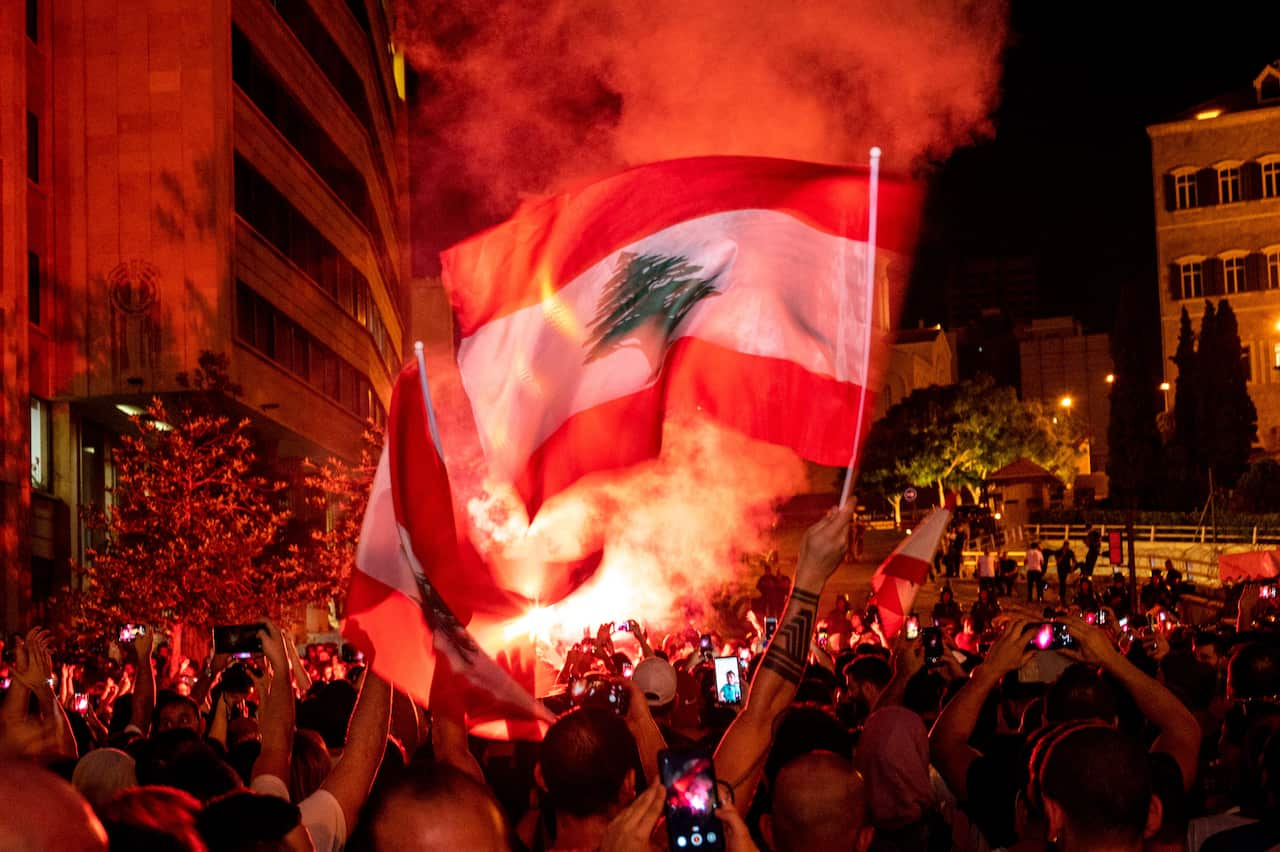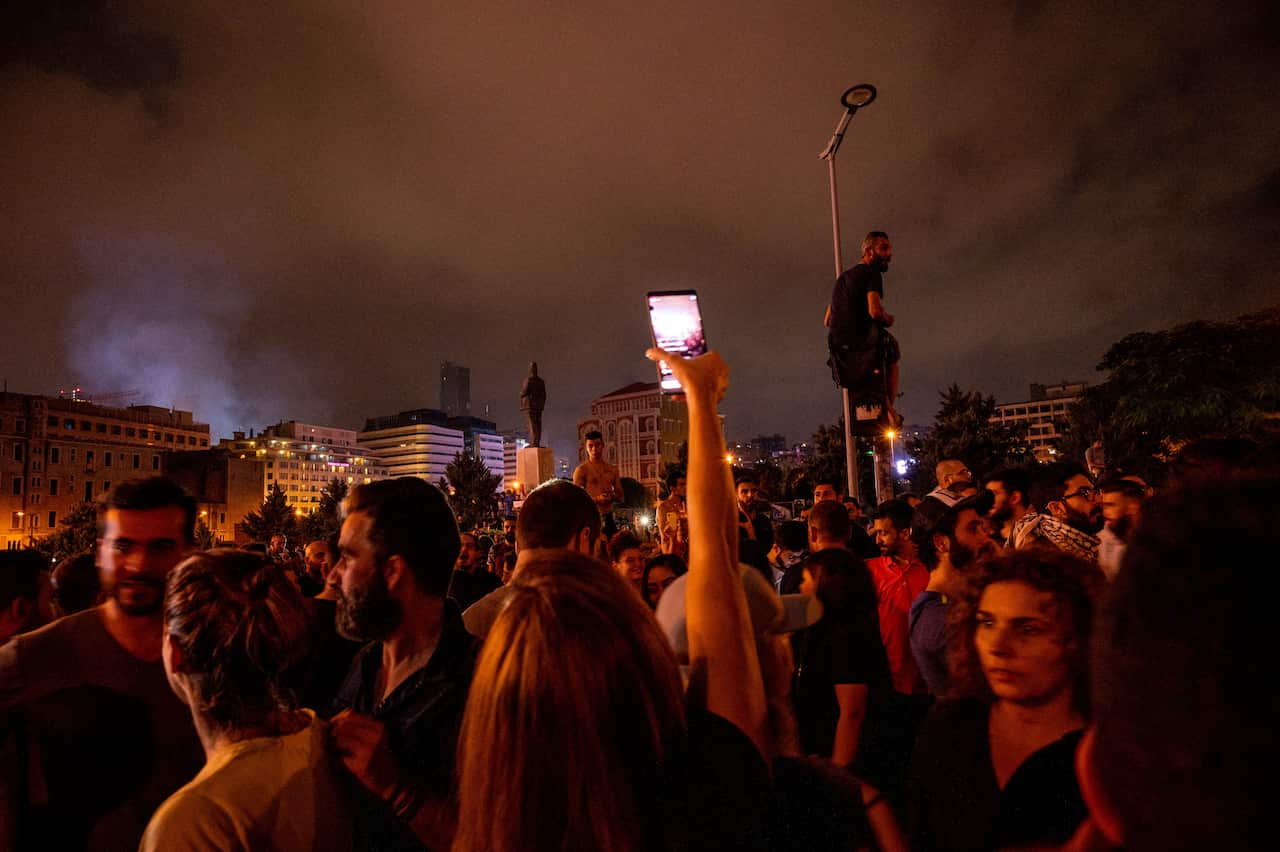Demonstrators and police have clashed in Lebanon as thousands of people rallied against the government's handling of an economic crisis, in one of the biggest protests the country has seen in years.
The government-backed down from plans, announced hours earlier, to tax voice calls made through the Facebook-owned WhatsApp messaging software as people vented their anger at the political elite in the second nationwide protests in less than a month.
Protesters blocked roads across Lebanon with burning tyres and security forces fired tear gas at demonstrators in central Beirut.

Dozens of people were wounded, the Red Cross said. Lebanon's internal security forces said 60 police were wounded.
Throughout Thursday night, crowds gathered in the capital Beirut's Riad al-Solh square.
"The people want to topple the regime," they chanted.
"We are not here over the WhatsApp, we are here over everything: over fuel, food, bread, over everything," said a protester in Beirut who gave his name as Abdullah.

Nearby, dozens of young men on motorcycles circled the main crossroad and set tyres on fire, some of them ripping out billboards to toss them into the rising flames.
The protests have been fuelled by stagnant economic conditions exacerbated by a financial crisis in one of the world's most heavily indebted states.
Prime Minister Saad al-Hariri's government of national unity is seeking to approve a 2020 budget, a step that may help it unlock billions pledged by international donors.
But donors want to see Beirut implement long-delayed reforms to curb waste and corruption.
The government unveiled a new revenue-raising measure earlier on Thursday, a charge of 20 cents a day for calls via voice-over-internet protocol (VoIP), used by applications including WhatsApp, Facebook calls and FaceTime.
But as protests spread across Lebanon, Telecoms Minister Mohamed Choucair told journalists the proposed levy on WhatsApp calls had been revoked.
Mr Hariri said the measure had been expected to net about $200 million in revenue for the state each year.
Lebanon has only two mobile service providers, both state-owned, and some of the most costly mobile rates in the region.
The education ministry said schools would close on Friday after the protests. Public administration employees declared a strike so that workers could join protests expected for Friday.

